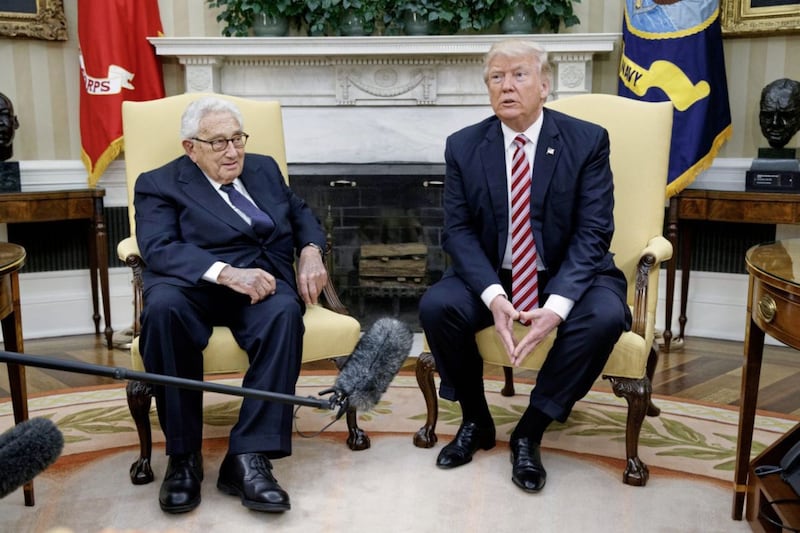Henry Kissinger, the US secretary of state who dominated foreign policy under former presidents Richard Nixon and Gerald Ford, has died aged 100, his consulting firm Kissinger Associates said.
The firm said in a statement Mr Kissinger died at his home in Connecticut and is survived by his wife Nancy, two children, David and Elizabeth and his five grandchildren.
Kissinger played no active part in the peace process in Northern Ireland, but a negotiating tactic that is generally credited to him was deployed in bridging the gap between the two sides: constructive ambiguity. The agreement was worded in such a way that both parties were able to project the meaning they wanted on to it. This enabled decades of sectarian violence, that had claimed more than 3,500 lives, to end.
Dr. Kissinger played central roles in the opening to China, negotiating the end of the Yom Kippur War in the Middle East, and helping to bring America's role in the Vietnam War to a close.
He also worked to set the former Rhodesia on the path to representative government and negotiated key arms control agreements with the Soviet Union.

Dr. Kissinger has written 21 books on national security matters.
Considered one of America's great statesmen, Dr. Kissinger was regularly consulted by American presidents of both political parties and scores of foreign leaders after he finished government service in 1977.
In May this year, he celebrated his 100th birthday and remained active well into this year. Most recently, Dr. Kissinger focused his attention on the implications of artificial intelligence. He was a frequent guest with media and on panel discussions, writing, and traveling abroad. Additional biographical information about Dr. Kissinger and his writings can be found at www.henryakissinger.com.
British government files, released by the National Archives in 2016, showed Dr Kissigner was among the first to respond to the events of November 1990 when then Prime Minster Margaret Thatcher was forced from office.
He telephoned Charles Powell, Mrs Thatcher’s trusted foreign affairs adviser, in a “very emotional state” on learning the news.
In a note to the former PM recounting their conversation, Mr Powell said Mr Kissinger had told him: “It was worse than a death in the family.
“You were one of the great figures of modern times and nobody outside Britain – indeed nobody outside Westminster – could understand how your fellow Conservatives could have done this.”
A visit to London in 2002 had sparked protests by anti-war demonstrators.
A huge puppet figure of him was erected outside the Royal Albert Hall by the Get Kissinger Group, which planned to hold a mock trial accusing him of being a war criminal because of his involvement in events in Vietnam, Laos and Cambodia.
In a speech during that visit, he admitted it was “quite possible” mistakes were made in administrations in which he served.
But he told an audience of British business leaders at the Institute of Directors’ annual convention that the issue was whether courts were the right place to determine what had happened.
Shortly before the event, human rights campaigner Peter Tatchell lost a legal bid to have Mr Kissinger arrested under the Geneva Convention.
Dr. Kissinger is survived by his wife of nearly 50 years, Nancy Maginnes Kissinger, two children by his first marriage, David and Elizabeth, and five grandchildren.








